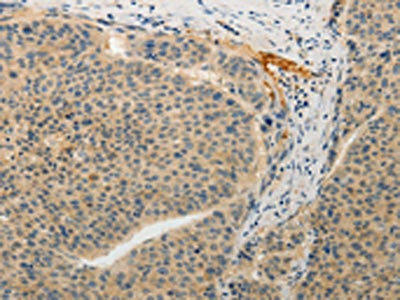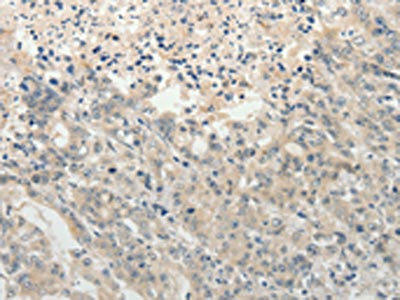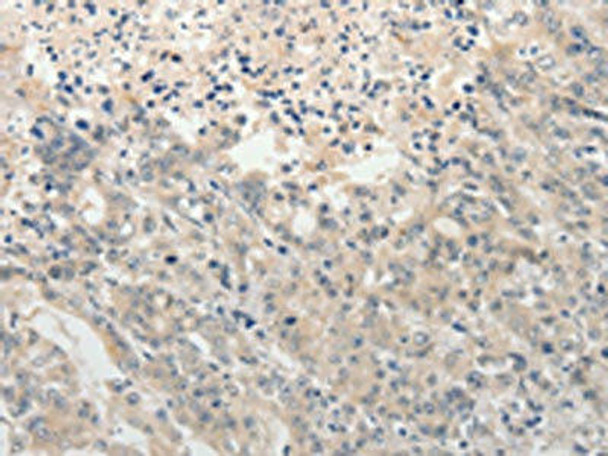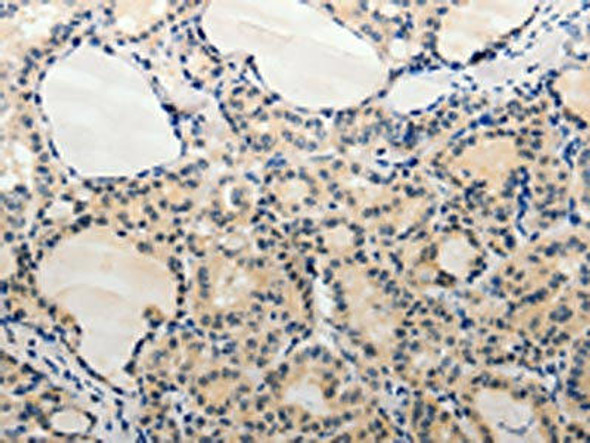| UniProt Protein Function: | ADAMTS6: a member of the ADAMTS (a disintegrin and metalloproteinase with thrombospondin motifs) protein family. Members of the family share several distinct protein modules, including a propeptide region, a metalloproteinase domain, a disintegrin-like domain, and a thrombospondin type 1 (TS) motif. Individual members of this family differ in the number of C-terminal TS motifs, and some have unique C-terminal domains. [provided by RefSeq, Jul 2008] |
| UniProt Protein Details: | Protein type:EC 3.4.24.-; Motility/polarity/chemotaxis; Secreted, signal peptide; Secreted; Protease Chromosomal Location of Human Ortholog: 5q12 Molecular Function:metallopeptidase activity |
| NCBI Summary: | This gene encodes a member of the ADAMTS (a disintegrin and metalloproteinase with thrombospondin motifs) protein family. Members of the family share several distinct protein modules, including a propeptide region, a metalloproteinase domain, a disintegrin-like domain, and a thrombospondin type 1 (TS) motif. Individual members of this family differ in the number of C-terminal TS motifs, and some have unique C-terminal domains. The encoded preproprotein is proteolytically processed to generate the mature enzyme. Expression of this gene may be regulated by the cytokine TNF-alpha. [provided by RefSeq, Mar 2016] |
| UniProt Code: | Q9UKP5 |
| NCBI GenInfo Identifier: | 229462816 |
| NCBI Gene ID: | 11174 |
| NCBI Accession: | Q9UKP5.2 |
| UniProt Secondary Accession: | Q9UKP5,Q59EX6, Q5IR87, Q5IR88, Q5IR89, Q68DL1, |
| UniProt Related Accession: | Q9UKP5 |
| Molecular Weight: | 34,189 Da |
| NCBI Full Name: | A disintegrin and metalloproteinase with thrombospondin motifs 6 |
| NCBI Synonym Full Names: | ADAM metallopeptidase with thrombospondin type 1 motif 6 |
| NCBI Official Symbol: | ADAMTS6 |
| NCBI Official Synonym Symbols: | ADAM-TS6; ADAMTS-6; ADAM-TS 6 |
| NCBI Protein Information: | A disintegrin and metalloproteinase with thrombospondin motifs 6 |
| UniProt Protein Name: | A disintegrin and metalloproteinase with thrombospondin motifs 6 |
| Protein Family: | A disintegrin and metalloproteinase with thrombospondin motifs |
| UniProt Gene Name: | ADAMTS6 |
| UniProt Entry Name: | ATS6_HUMAN |









